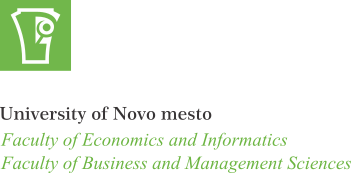The Driving Force of Evaluation at Higher Education Institutions in Serbia
Keywords:
evaluation, teacher, student, higher education institutionsAbstract
In this paper, the focus is on the evaluation of teachers’ work at higher education institutions in Serbia. On the one hand, evaluation enables the faculties to reveal how teachers work, and on the other hand, due to the feedback the teacher can undertake corrective measures in order to improve their work. The aim of this study is to research the evaluation at the faculties in Serbia. The results were obtained by the quantitative and qualitative method of research. 432 professors from all universities in Serbia participated in the study. The results show that evaluation at faculties does exist, but it does not meet the expectations of teachers. In order to get complete results related to evaluative processes, the opinions of students and faculties’ management should be investigated in future researches.
References
Branković, D. and Partalo, D. (2015). Evaluacija kvaliteta procesa i ishoda univerzitetske nastave. Zbornik “Nastava i učenje”. Užice: Učiteljski fakultet u Užicu.
Braskamp, L., Brandenburg, D. and Ory, J. (1984). Evaluating teaching effectiveness: A practical guide. Beverly Hills: CA, Sage.
Cashin, W. (1987). Defining and Evaluation College Teaching. Kansas State University: IDEA Paper 21, september 1989.
Centra, J. (1993). Reflective faculty evaluation: Enhancing teaching and determining faculty effectiveness. San Francisco: Jossey-Bass.
Clift, J. and Imrie, W. (1980). The Design of Evaluation for Learning. Higher Education, 9, No. 1, pp. 69–80.
Ebel, R. (1979). Essentials of Educational Measurement. New Jersey: Prentice Hall.
Guidelines for Evaluating Teaching. Retrieved on 8/15/2016 form the Internet: http://www. crit.umich.edu.
House, K. (1985). Trends in Evalution. Educational Researcher, 19, No. 3, pp. 24–28.
Hoyt, P. and Pallet, H .(1999). Appraising Teaching Effectiveness: Beyond Student Ratings. IDEA Paper 36, November.
Izveštaj i spoljnoj proveri, Filozofski fakultet u Nišu. Retrieved on 8/15/2016 form the Internet: http://www.filfak.ni.ac.rs.
Izveštaj o eksternoj evaluaciji ustanova visokog obrazovanja u Crnoj Gori. Retrieved on 8/15/2016 form the Internet: http://www.gov.me.
Janković, A. and Jarić, I. (2009). Uslovi rada nastavnog osoblja na univerzitetu u Beogradu:evaluacija rada nastavnika. Filozofija i društvo, 3.
Lofty, J. (2000). We Are Doing This Already:Teacher Talk about Standards in Britain and America. The English Journal, 89, No. 4, pp. 97–104.
Milenović, Ž. (2015).Objektivnost studenata u evaluaciji rada fakulteta, njegovih delova i učesnika u nastavnom procesu. Zbornik “Nastava i učenje”. Užice: Učiteljski fakultet.
Pavlović, N (2016). Vrednovanje rada nastavnika u visokoškolskim institucijama Srbije. Ekonomika, Vol. 2, pp. 85–97.
Pešić, M. et al. (2000). Pedagogija u akciji. Beograd: Institut za pedagogiju i andragogiju.
Peterson, P. and Comeaux, M. (1990). Evaluating thr Systems: Teachers Perspectives on Teacher Evaluation. Educational Evaluation and Policy Analysis, 12, No. 1, pp. 3–24.
Potkonjak, N. (1972). Vrednovanje rada u osnovnoj školi. Beograd: Jugoslovenski zavod za proučavanje školskih i prosvetnih pitanja.
Vilotijević, M. (1992). Vrednovanje pedagoškog rada u školi. Beograd: Naučna knjiga.
What is Efective Teaching? What Can Be Evaluated? Retrieved on 8/15/2016 form the Internet: http:// www.flinders.edu.au.
Downloads
Published
How to Cite
Issue
Section
License
Copyright (c) 2022 Journal of Economic and Business Sciences

This work is licensed under a Creative Commons Attribution 4.0 International License.




